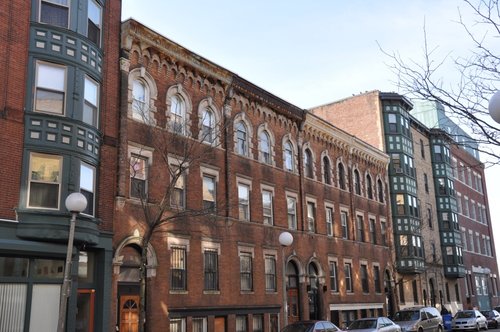
Creative Commons 4.0: Magicpiano, http://commons.wikimedia.org/wiki/File:BostonMA_LowerRoxburyHD.jpg
According to the annual 50-State Property Tax Comparison Study, Boston has the lowest property taxes in America.
The Lincoln Institute of Land Policy study tracked the effective property tax rates in each state’s largest city and rural area (including the District of Columbia), and their role as the primary revenue source to fund local government.
Among properties priced in the $150,000 bracket, Bridgeport, CT, tops the list at an average property tax of $6,060. At the bottom of the list is Boston, with an average tax of only $175. The rate of property taxes varies widely across America, ranging from 4 percent in Bridgeport to 0.03 percent in Honolulu.
Boston Agent assembled the graph below for communities with the lowest property taxes in the $150,000 range:
This graph shows properties in the $300,000 bracket:
Low Property Taxes in Unaffordable Boston Housing Market
Despite being one of the most expensive cities to live in, Boston boasts a surprisingly low property tax.
The places with the highest property tax rates tend to be struggling cities with low property values, such as Bridgeport, Detroit and Aurora, IL. The cities with the lowest property tax rates tend to be more affluent cities with high property values, such as Boston, Honolulu and Washington, D.C.
Many factors play into the amount of property tax. Areas with high sales taxes (such as Washington and Chicago) can use that to help fund local government, while cities with low sales tax are forced to rely almost solely on property tax. Interestingly, Honolulu has the third lowest sales tax in America, and still has one of the lowest property taxes. However, the island’s tourism industry contributes $10 billion dollars annually, greatly reducing the need for taxes.
As Boston Agent has reported many times before, despite the low property taxes, Boston is still one of the most expensive places to live in America. Rated the seventh most expensive place to live in a BuisnessInsider.com study, Boston’s real estate prices continue to soar thanks to a high-income population and a limited supply/inventory of housing.


